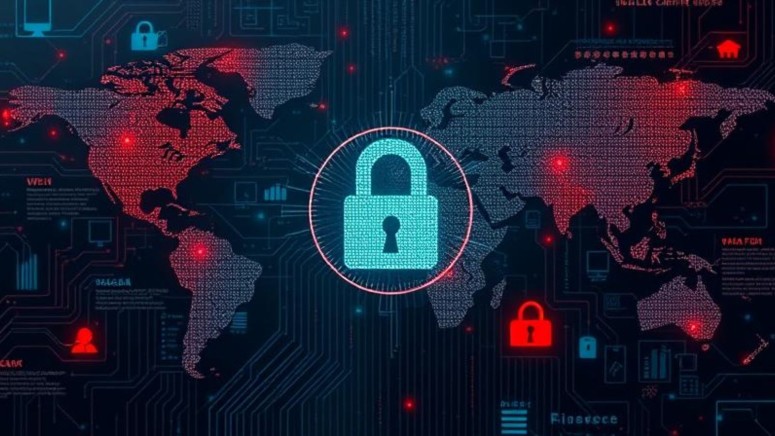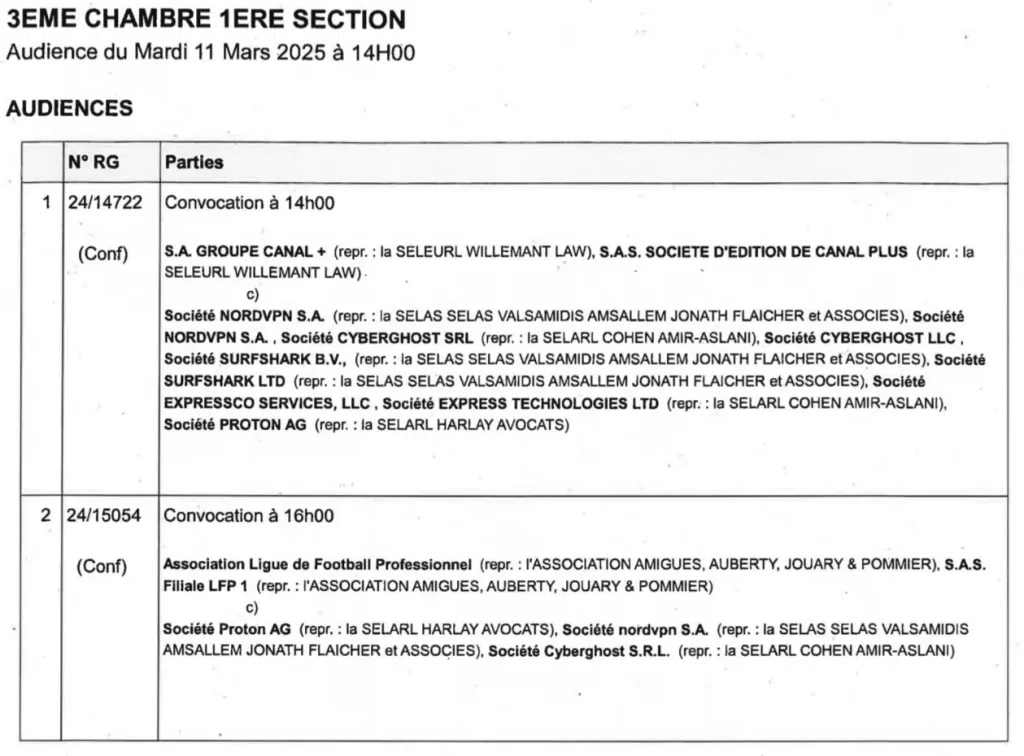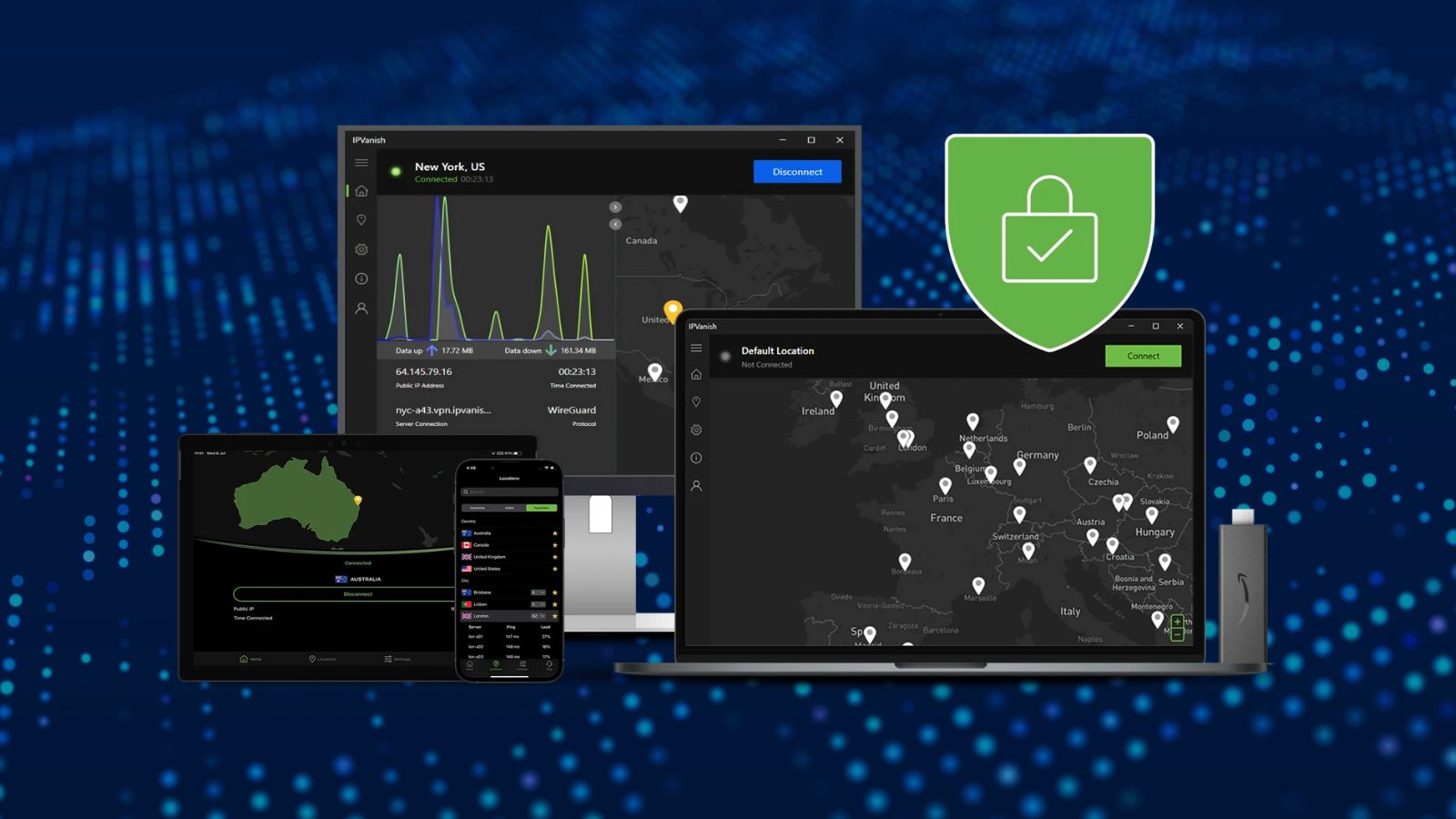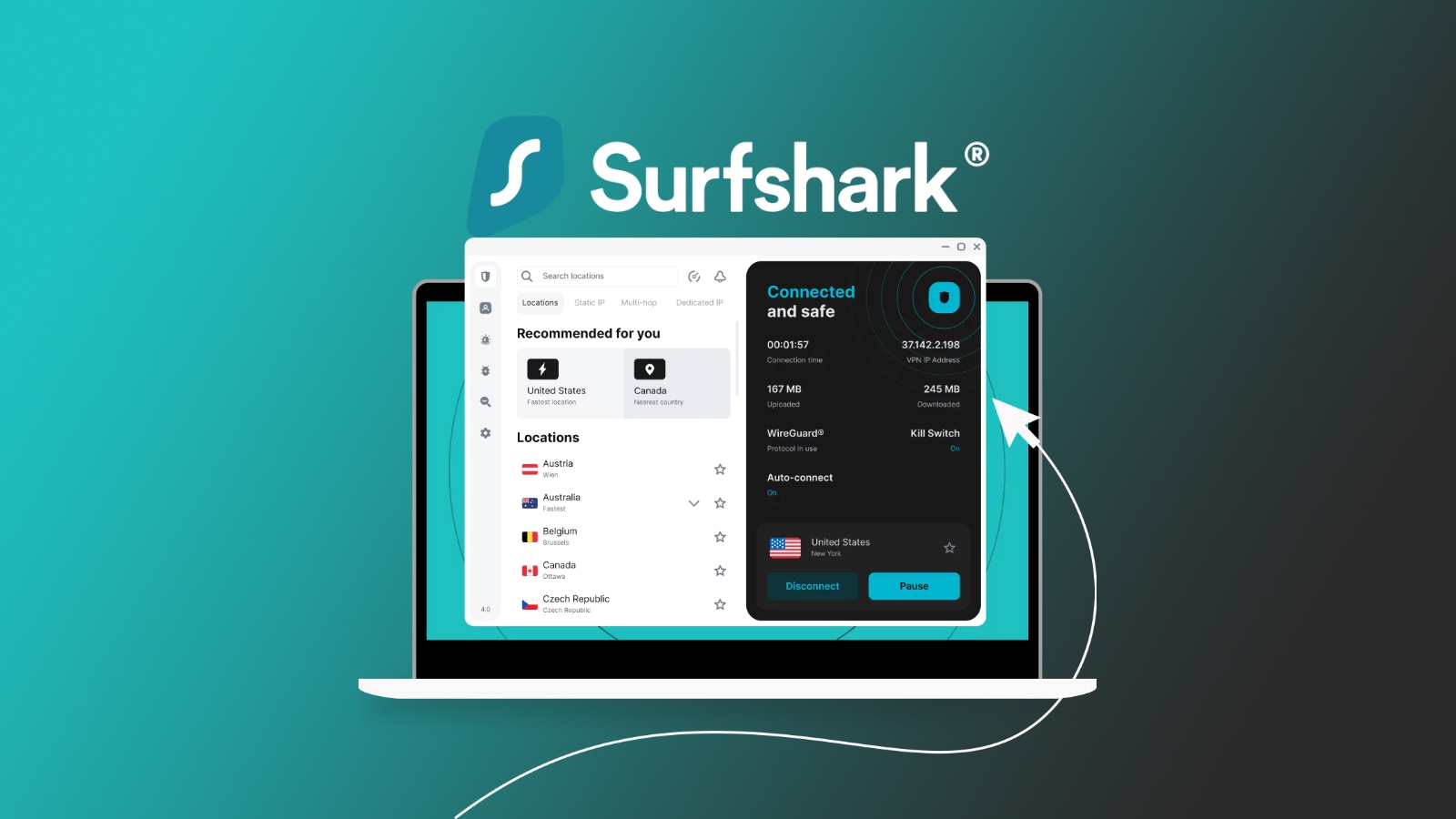
NordVPN, ExpressVPN, ProtonVPN, Cyberghost, Surfshark Could Start Blocking Pirate Websites
- Several popular VPN providers may start blocking pirate websites if a French court approves an injunction.
- The VPN Trust Initiative condemns this grave anti-piracy move that “misplaces blame.”
- ProtonVPN says including VPNs in France's piracy blocking scheme undermines internet freedom.
ProtonVPN, NordVPN, ExpressVPN, CyberGhost, and Surfshark are the next targets of an ongoing anti-piracy legal battle after courts granted injunctions against DNS resolvers in France. If the injunction is approved, these VPN providers and others will start blocking pirate sites and services.
A coalition of rightsholders, including Canal+ and Ligue de Football Professionnel (LFP), has filed legal proceedings in France to compel major VPN providers to block access to pirate sites and services and prevent users from bypassing existing site-blocking measures.
The VPN providers targeted by the injunction have publicly condemned the move, saying that blocking piracy through VPN networks threatens user privacy and internet freedom. Each provider is preparing to challenge the injunction in court, with a hearing scheduled for next month.
The VPN Trust Initiative (VTI), a coalition representing several top VPN brands – including ExpressVPN, NordVPN, and Surfshark – released a formal statement opposing the proposal.
"Imposing blocking on VPNs in France risks significant overreach, where legitimate and non-infringing content can be summarily cut off," the VTI statement reads. "Given VPNs do not actually host content, it is misguided and disproportionate to block access to the entirety of these tools that have many proven additional benefits to end users."
Swiss VPN provider ProtonVPN issued a response. “This case is unprecedented in Western societies and represents a dangerous attack on internet freedom on the altar of corporate greed,” the company stated.
ProtonVPN argued that rightsholders should focus their legal efforts on directly targeting pirate services, such as illegal IPTV platforms, rather than intermediaries that provide secure and private communications for millions of users globally.
Implementing blocking measures, ProtonVPN claims, would undermine privacy protections and push users toward lower-quality, offshore VPN services outside of French jurisdiction.
ProtonVPN is ready to take the matter to the European Court of Justice if the injunction is approved.
Site blocking has long been a widely accepted anti-piracy measure worldwide, supported by lawmakers and courts in countries like Germany, the U.K., and the U.S. Originally, the burden fell on Internet Service Providers (ISPs) to block access to infringing websites.
Over time, this approach expanded to include DNS resolvers, such as Cloudflare and Google, under court injunctions. Most recently, France’s courts have led the charge to add VPN providers to this growing list of intermediaries held accountable for implementing blocking measures.
According to the rightsholders, including VPN providers is a logical progression in the battle against copyright infringement, as these services enable users to bypass both ISP and DNS-level restrictions.












